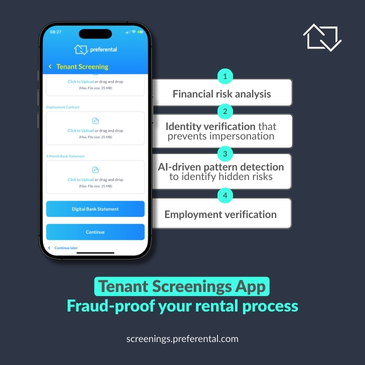Unlocking Insider Secrets: How to negotiate a better mortgage bond rate
The South African Reserve Bank recently announced that the repo rate will remain unchanged at 8.25%. Ayanda Ndimande, Head of Business Development at Sanlam Retail Credit says the news may prompt South Africans to consider taking out credit. Just qualifying for a loan can feel like overcoming a huge hurdle, which means many don’t take the next step of negotiating their interest rate. Ndimande emphasizes that negotiating with confidence comes from doing your ‘homework’ and results in a feeling of control over the process.
How to negotiate a better rate on a loan
“Remember, if you don’t ask, the answer is always no,” says Ndimande. You need two things to negotiate:
- A good credit score: Your credit score reflects your credit ‘CV’ – your accumulated history of dealing with debt. To ‘pass go’ on getting a loan, this score needs to be strong. You can do a free credit score check on the Sanlam credit dashboard.
- Next, you need to know your affordability: What kind of loan terms can you realistically afford? It’s critical to do your own research. Look at previous bank statements and consider what you’d have to give up affording a R2 000 monthly loan repayment, for example. Would this impact your quality of life in the short- and long-term?
Jackie Smith, Head: Direct Distribution & Product Management, ooba Home Loans, adds that having a deposit – especially a sizable one – puts you in a much stronger position at the negotiation table.
Ask yourself some key questions:
- What’s the opportunity cost of having this loan? What will it cost you in terms of your lifestyle and financial goals?
- Think about the fluidity of the economy. If petrol and food prices continue to increase, for example, can you afford these expenses and the loan?
- Do you need the money now, or could you save over the next few months/ years, to be able to pay more upfront, so your repayment installments are lower?
- How will the swinging repo rate impact you? Can you afford to potentially pay more if the rate increases?
It is vital to understand where you are at financially, so you can enter a negotiation from a strong position.
How to be brave enough to ask for a better rate
Ndimande says many people don’t know that they can negotiate their offer. “People are so relieved to qualify, they don’t consider asking for a better rate. Ongoing interest rate hikes have created a lot of Twitter conversations about unaffordable increases in bond repayments. Monthly instalments on a R2 million bond, for example, have increased by about R5600 since November 2021. Often, someone will ask whether they requested a better rate. The answer is usually no – they didn’t know that they could do so.
“It starts with knowing that you can ask for better terms. Then you need to empower yourself to understand your financial position and how lenders work,” says Ndimande.
For home loans in particular, Smith explains there are many advantages of working with a bond originator including access to free, independent, expert advice. “A bond originator does a lot of the legwork for you, negotiating the best terms across multiple lenders to get you the best deal at the most favourable interest rate.”
Should you ‘shop’ around for comparative quotes?
Yes, but not too much! Asking for quotes from more than three lenders in a three-month cycle could harm your credit score, says Ndimande. “It’s a measure to protect consumers from fraud. When you take out a new loan or qualify and take out a loan, this doesn’t immediately reflect as it may take a few days for the creditor to register your application with the bureau. So, someone could apply for – and be granted – multiple loans in your name. Hence, fraudulent activity may be suspected if you go through the application process with multiple lenders.”
Ndimande stresses that this could marginally influence your credit score, “Asking for myriad quotes is also seen as risky behaviour, potentially reflecting an element of desperation for the loan.”
It’s also important to remember that all registered lenders are regulated by the National Credit Regulator, so quotes should not differ too much.
Think carefully about a fixed interest rate.
Given the rising repo rate, Ndimande says many people are tempted to renegotiate their terms and ask for a fixed interest rate. While banks don’t offer fixed rates upfront, you can request a quote once the bond is registered. “You are likely to get a higher fixed interest rate than you’re currently paying – so, you may go from 10% to 12%, for example but it’s important to remember that interest rates do go down. If the interest rate eventually drops to 10%, you will still be paying a fixed rate of 12%. It’s unlikely that you will be able to change this, so it’s something to be aware of.”
Negotiating with confidence comes from knowing your things.
When you go to Home Affairs, you make sure you know exactly what documents you need before you queue. The same kind of preparation should go into getting a loan. You will feel a lot more confident if you know your financial standing and what you can afford. If you can’t reduce your interest rate, you may be able to lower your premiums by taking the loan over a longer term – a 30-year bond instead of the standard 20 years, for example – but be aware that this will substantially increase your total repayments. If you cannot afford this, you need to take a lower amount. It’s important to know the maximum debt you can take on.
Ndimande adds that it’s also critical to remember you’re dealing with a human. Being courteous and kind goes a long way.






.avif)

.avif)


.avif)

.avif)




.svg)


.avif)

.avif)







%20.avif)








.avif)
%20.avif)
